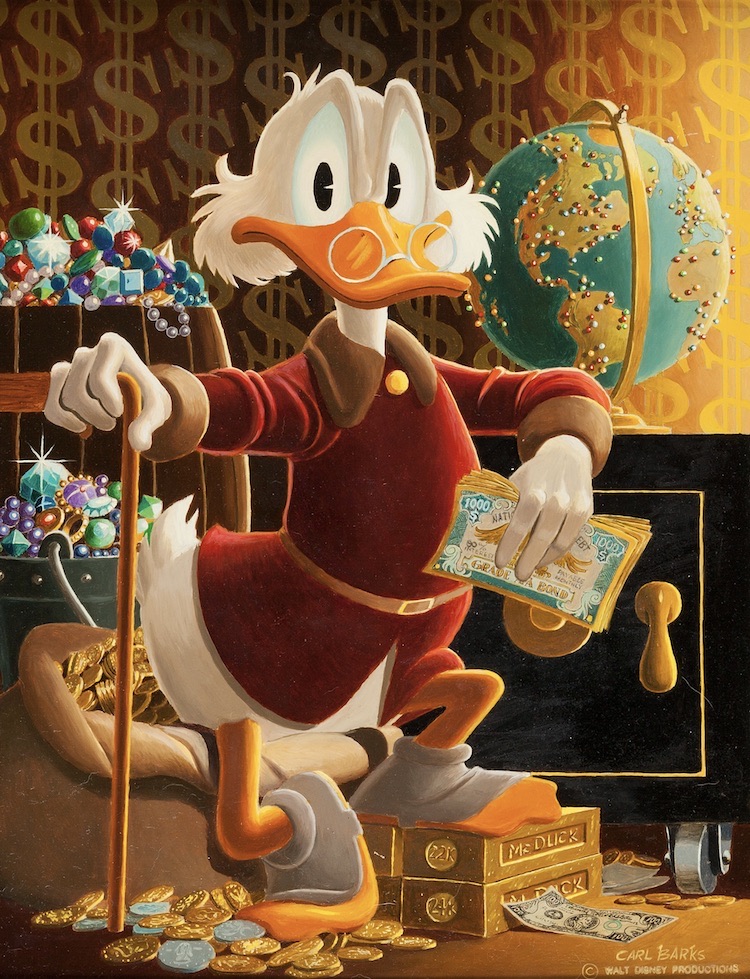In 1952, Scrooge was granted his own comic. Barks celebrated Scrooge's autonomy with the issue-length Four Color story Only A Poor Old Man - a standard battle with the larcenous Beagle Bros, it doubled as a perfect summation of Scrooge's final personality: less nasty and cantankerous than the '40s McDuck, but more complex and sympathetic.
Barks would write and draw four to six full-length Uncle Scrooge adventures a year for the next decade and a half. It's true that by this time, Barks had moved past his first hot blast of inspiration, but to argue that the Scrooge stories were not as brilliant as Barks' '40s work is hardly a slight. Even if some of the sharp edges had been lost (including the rounder, cartooned, less detailed artwork), Barks proved in such yarns as Back To The Klondike, The Golden Fleecing, Land Beneath The Ground, The Golden River, The Flying Dutchman, and stories set in Atlantis and Seven Cities of Cibola, that he still had a sense of wit and craftsmanship, that far outstripped other cartoonists.
Barks often dropped hints about Scrooge's past. These hints were studied obsessively by fans - one of whom, Don Rosa, would eventually attempt to weave them all into a single "history" of Scrooge. The effort was never entirely convincing (Barks himself, who had no such grand scheme in mind, had thrown in flashbacks or lines of dialogue purely on a story-by-story basis) but it suggests the degree to which the world Barks delineated in these stories created its own reality - and give a hint as to why the Scrooge cannon remains a particular favourite among many readers.
REVIEW BY ART SPIEGELMAN:
I loved Carl Barks' work since those days of long-lost innocence when I assumed the duck stories were all written and drawn by Walt Disney himself. As far as I was concerned, they were Walt's best work, done on lunch-breaks, when he wasn't making animated cartoons or hosting his weekly TV show. Before that I just believed the ducks were somehow real, and now, as an adult I've reverted to my first opinion: the ducks ARE real. Not the way they look, of course, but they're emotionally real, realer than most people I've met.


No comments:
Post a Comment